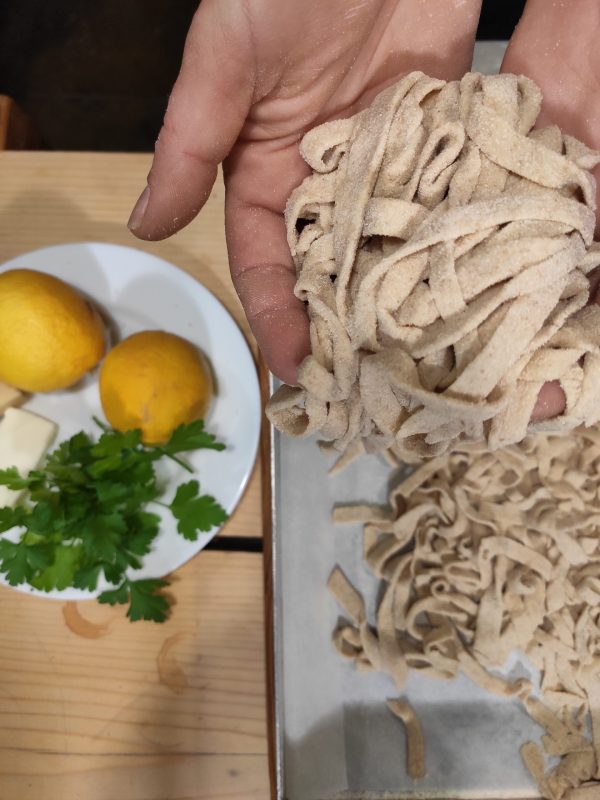The Roots of Pasta: the Trabia port, Palermo area, Sicily
The town of Trabia in Sicily holds a significant place in the history of pasta. Historical documents mention Trabia as the birthplace of pasta, with its local production and exportation dating back to ancient times. In 1154, the Arab geographer Al Idrisi, while traveling around Sicily on behalf of the Norman King Roger II, described the existence of Trabia and its local pasta production. He noted that Trabia was an enchanting place abounding in streams that drove numerous mills, where substantial quantities of pasta were made and exported to various regions, including Calabria and other Muslim and Christian lands. This historical testimony confirms that the dry long pasta, known as “itriya”, was produced in Trabia even before 1154, making it a pivotal location in the early manufacturing of pasta.
Considering the Trabia Area at that time was just a sort of extension of the commercial Palermo port and if we also keep in mind the location where most Sicilian wheat was produced, we find the area of Trabia port right in the middle. The production of grain in Sicily since Roman times was concentrated in the middle of Sicily around the area of Enna and Caltanissetta, and the closer cost was just some kilometers north.
The Macaroni Real: Unraveling the Story
The widely circulated tale of Marco Polo bringing pasta from China to Italy is a captivating legend. However, historical evidence suggests a different narrative. While pasta did exist in China for centuries before Marco Polo’s time, there is no substantial proof that he introduced it to Italy. The true origins of pasta are believed to be connected to the importation of similar foods from the Middle East to Sicily. This historical account challenges the popular myth surrounding Marco Polo and sheds light on the early roots of pasta in Sicily.
What Pasta Is: A Culinary Legacy
From the enchanting port of Trabia to the bustling markets of ancient Sicily, the journey of pasta reflects the rich tapestry of cultural exchange and gastronomic innovation. As we savor each forkful of al dente perfection, we are reminded of the enduring heritage and timeless allure of this beloved culinary treasure.
This historical exploration of pasta’s origins offers a compelling narrative that transcends the confines of myth and legend, inviting us to embrace the diverse influences that have shaped one of the world’s most cherished foods.
This is why it becomes more important to preserve the traditional way of making it and the knowledge that enhances our awareness of the value of this product, especially in light of the risks associated with intensive agricultural production and the processes that compromise the authenticity of this beautiful and unique gift.
Pasta Making Cooking Class on our Farm in Sicily
As Sicilians, and pasta lovers, we can’t wait to share this passion as much as we can in every way: our farm often organizes cooking classes where Making pasta is central to our menu.
We also organize online cooking classes, often handmade pasta is the recipe,
We looking forward to hosting you here in Sicily or online from our Farm.

